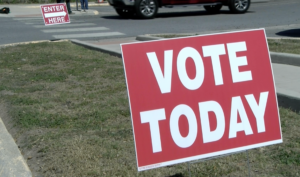BROWNSVILLE– On Jan. 3rd, the U.S. Justice Department filed suit against the state of Texas to challenge senate bill four regarding immigration law.
If Senate Bill Four takes effect on March 5th, it will empower state police to question people’s immigration status, raising concerns about potential racial profiling.
“And I think the concern is how could law enforcement go about implementing this without engaging in racial profiling? Right. Are they going to be asking these questions only of people that look a certain way, speak a certain way” UTRGV Political Science Assistant Professor Alvaro Corral said.
Coral said Texas Senate Bill 4 makes crossing the border without permission a crime. The first violation is a misdemeanor with up to six months in jail, and repeating it becomes a felony with a punishment of up to 20 years in prison.
Immigration lawyer Mauricio Garcia said in 2012, Arizona tried to pass Bill 1070, similar to SB 4. The U.S. Supreme court, in the case Arizona versus the U.S., Ruled only the federal government has the power to make and enforce immigration laws.
According to Garcia, Texas is revisiting the case because the actual U.S. Supreme court looks different than in 2012 and believes the main goal of SB 4 is to “terrorize” the immigrant community.
“What this law is going to do is to interrupt those plans if you are in the immigration process. If you have immigration cases under state law, I don’t care. You go to jail. So, that’s going to affect quite a few people who are trying to do things legally. Back then, you had a court that perhaps wasn’t so friendly to that law, and in this case, you may have a court that could be a bit more favorable to proceeding with that law” Garcia said.
In a news release on Dec. 18, Governor Abbott said he signed sb four into law to “stop the tidal wave of illegal entry into Texas, add additional funding to build more border wall, and crackdown on human smuggling.”
Corral said with less than two months from sb four potentially taking effect, concerns regarding police training on race profiling will be raised.
“ If police, you know, and other law enforcement officials at the state level don’t receive that training before march 5th, then that gives them a lot of sort of leeway as to how they’ll implement this at the street level.”





